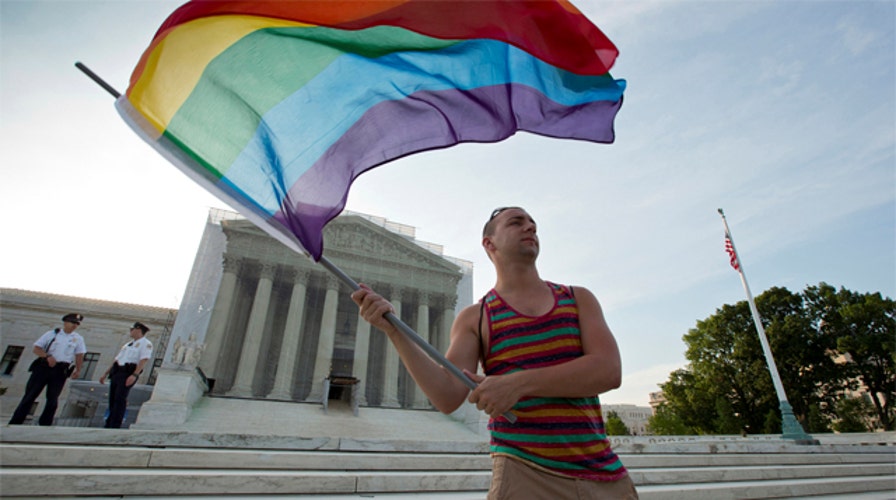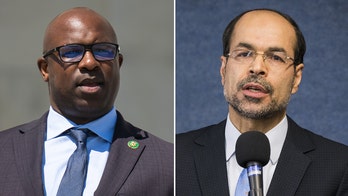Same-sex marriage becoming the law of the land?
Ted Olson and Tony Perkins on impact of this week's Supreme Court decision
Tony Perkins, Family Research Council president and outspoken opponent of gay marriage, said Sunday that the Supreme Court effectively deciding last week to allow states to handle the issue is a “back alley maneuver” and that the debate is “not going away.”
The Supreme Court on Monday denied appeals from five states seeking to retain their bans on same-sex marriage.
Perkins argued in a debate on "Fox News Sunday" with former Bush administration Solicitor General Ted Olson that the justices’ announcement was comparable to how those on the high court handled the landmark, 1970's abortion case Roe v. Wade.
The high court essential decided that state laws are unconstitutional if they say abortions are illegal if performed outside of trying to save the mother’s life. However, the court also left states some authority to regulate abortions in the later stages of pregnancy.
“The court did a back alley type, Roe v. Wade judicial decision, by letting the lower courts do their evil bidding,” Perkins said. “This is an unprecedented decision. … What we see here, I believe, is that the court has lit a fuse to a powder keg, culturally, that is going to have ramifications for years to come in this nation.”
Right now, at least 12 states have approved same-sex marriage through voter referendums or legislative action, while lower courts have approved them in roughly 15 other states.
On the argument that non-elected judges are perhaps unfairly making such decisions, Olson said they protect Americans in states in which one political party controls elected government.
“We have protection from majority,” he said, “an independent judiciary to protect the rights of citizens.”
Olson also said nobody can say what the justices were thinking in their recent announcement, but he speculated they decide not to weigh in after seeing the “overwhelming trend” of federal courts handling the issue “in an appropriate and proper way.”
Perkins, when asked what impact gay marriage will have on his life, pointed to a same-sex couple perhaps living near his home, which would create conflicts with the ideal of marriage -- between man and woman -- that he teaches his children.
“You want the sky to fall because two people that are living next door to you -- what court after court after court has said that allowing people of the same sex to marry the person that they love and be a part of our community and to be treated equally has -- does no damage to heterosexual marriage,” Olsen responded.
Said Perkins: “If love is the issue, what are the (next) boundaries.”
Olson also argued that the non-appointed justices rightfully made clear in 1967 that bans on interracial marriages are unconstitutional.
“We’re talking about apples and oranges here,” Perkins responded. “There is a boundary between people of the same sex getting married. They can’t procreate. There’s nothing in nature to say that’s normal.”





